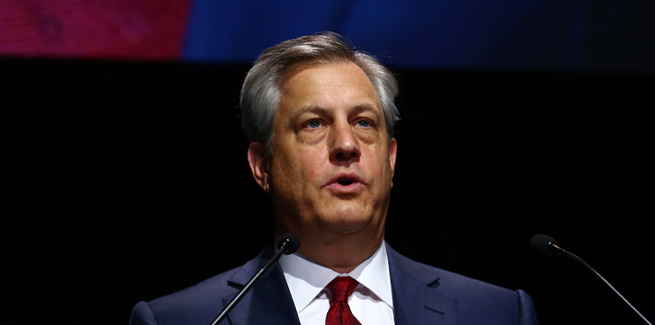Earlier this week, Australia’s anti-money laundering and terrorism financing regulator, AUSTRAC, has applied to the Federal Court for civil penalty orders against Westpac.
According to AUSTRAC, the civil penalty orders relate to “systemic non-compliance” with the Anti-Money Laundering and Counter-Terrorism Financing Act 2006 (AML/CTF Act).
AUSTRAC alleged that Westpac contravened the act on over 23 million occasions, some of which occurred in 2019.
According to AUSTRAC, from November 2013 to February 2019, Westpac was the sender of 10,771 outgoing international funds transfer instructions (IFTIs) with a total value of over $707 million under the arrangements it had with a correspondent bank.
The regulator claimed that Westpac failed to:
- appropriately assess and monitor the ongoing money laundering and terrorism financing risks associated with the movement of money into and out of Australia through correspondent banking relationships;
- report over 19.5 million IFTIs to AUSTRAC over nearly five years for transfers both into and out of Australia;
- pass on information about the source of funds to other banks in the transfer chain;
- keep records relating to the origin of some of these international funds transfers; and
- carry out appropriate customer due diligence on transactions to the Philippines and south-east Asia that have known financial indicators relating to potential child exploitation risks.
Immediately following the announcement, Westpac acknowledged AUSTRAC’s action, adding that it is currently reviewing the regulator’s statement of claim and would issue a further statement to the ASX once it has been assessed.
‘We will fix it’
The bank later hosted a conference call, in which Westpac CEO Brian Hartzer apologised for any wrongdoing perpetrated by the bank.
Mr Hartzer said he is committed to leading the bank in its response to the charges amid speculation that his position is under threat.
“I want to say, as CEO of Westpac, I am very sorry that this has happened and we will fix it,” he said. “I will be personally leading our response to all of these issues.”
He continued: “It’s unacceptable that this breach of Australia’s anti-money laundering laws has occurred. The mistakes should have been identified and rectified much faster.
“The board and executive team of Westpac are taking these issues very seriously [and] we know that we have to do better.”
The CEO added that he was “disgusted” by the nature of some of the transactions, which Westpac allegedly facilitated.
“[I] am personally disgusted and appalled by the subject matter of some of these transactions,” he said.
“I deeply regret that this has occurred, and as I said, I will get to the bottom of this personally and fix it.”
Mr Hartzer acknowledged the bank’s failures to report a large number of IFTIs that were processed on behalf of a “small number of international correspondent banks”, which it self-reported to AUSTRAC in August 2018.
“The specific problem occurred due to a combination of human and technical failings when we built the process for reporting IFTIs back in 2010 and 2011,” he said.
“The automatic reporting function was not correctly configured for two international banks that were using the product.
“We have since closed that product. Westpac self-reported the issue to AUSTRAC in 2018 once senior management became aware of the nature and scope of the issue.”
According to Mr Hartzer, of the unreported IFTIs, more than 99 percent were processed on behalf of one bank, adding that the “vast majority” of such payments were routine “low-value monthly pension payments” from foreign government pension funds to people living in Australia.
“Since self-reporting, we have worked very closely with AUSTRAC to address the problem and their concerns to ensure we remediate all the identified issues,” he added.
“We recognise that this is a significant matter for the bank, and we accept that there will be consequences for Westpac.”
The AUSTRAC case follows on from a similar one brought against Commonwealth Bank of Australia (CBA) last year, which resulted in the major bank paying a civil penalty of $700 million after admitting to further contraventions of Australia’s AML/CTF Act.
CBA entered into an agreement with AUSTRAC to resolve the civil proceedings commenced by the agency in the Federal Court of Australia on 3 August 2017.
CBA admitted it contravened the AML/CTF Act on 53,750 occasions.
The agreement followed court-ordered mediation between CBA and AUSTRAC and saw the bank pay a civil penalty of $700 million together with AUSTRAC’s legal costs of $2.5 million.
[Related: Westpac embroiled in money laundering allegations]
 ;
;
